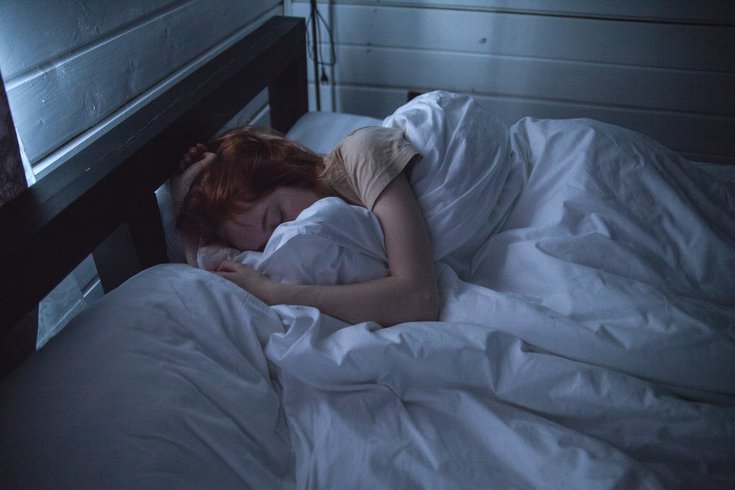
June 19, 2023
 Ivan Oboleninov/Pexels
Ivan Oboleninov/Pexels
Late bedtimes have been linked to higher death risks compared to early risers. New research suggests this could largely be due to habits like smoking and drinking.
Research has shown that night owls experience more health issues than early birds. Harmful tendencies among those who stay up late include poor sleep, lack of exercise and weight gain from extra snacking, and a new study suggests behaviors like smoking and drinking play a large part in explaining why early risers tend to live longer.
The Finnish study revisited data from more than 23,000 people, all 41 years old, who were surveyed in 1981. They were asked to state whether they were "clearly a morning person," "to some extent a morning person," "clearly an evening person" or "to some extent an evening person." The survey also collected self-reported data on smoking and drinking habits.
By 2018, more than 8,700 study participants had died. People who had said they were "clearly" night owls showed a 21% higher risk of death — from any cause — than those who said they were "clearly" morning people.
The researchers hoped to better understand findings from a British study that showed death rates were 10% higher among night owls than people who go to bed early. That study looked at information from more than 430,000 people in a public database, evaluating sleep habits and other factors over a 6.5-year span. It concluded that night owls were more likely to have psychological disorders, diabetes and stomach and breathing problems. They also were more likely to smoke, drink alcohol and use drugs.
In Finland, researchers conducted a deeper analysis of their data to see how night owls' higher death rate might be connected to their harmful behaviors. When accounting for factors like smoking, alcohol consumption, chronic disease, sleep duration and education, they found the death risk among night owls was about 9% higher than morning people — similar to the British study.
Drinking and smoking helped explain why the risk of death among night owls was higher than early risers, the researchers found. Alcohol-related disease and alcohol poisoning were 92% higher among "clearly" evening people than "clearly" morning people. Deaths due to lung and airway cancers, more likely among smokers, were 78% higher among night owls.
"This can reassure people concerned about what being a morning or evening person means for their life expectancy and health," study co-author Jaakko Kaprio, a professor of genetic epidemiology at the University of Helsinki, told Live Science. "It's not about the chronotype (being a morning or evening person) itself that is dangerous, but it is the associated lifestyle factors."
After the analysis in Finland cut night owls' increased death risk to 9% higher than early risers, Kaprio suggested the discrepancy is probably lower, considering the 1981 surveys examined drinking habits at that particular point in time.
"If we measured alcohol and drinking habits perfectly throughout the study period, I think the raised risk may be much less or absent," said Kaprios, whose study was published last week in the journal Chronobiology International.
Other research has shown that being a night owl or an early bird may be partially inherited, rather than chosen. A 2017 analysis of multiple family and twin studies found that there are heavy genetic influences on becoming a late-night or morning person.
At the time of the U.K. study, researchers argued the findings should be taken into consideration when shaping policies around work, school and daylight saving in the summer, which has become a hotly debated issue in the U.S.
"If we can recognize these chronotypes are, in part, genetically determined and not just a character flaw, jobs and work hours could have more flexibility for owls," said Kristen Knutson, a Northwestern University professor who contributed to that study. "They shouldn't be forced to get up for an 8 a.m. shift. Make work shifts match peoples' chronotypes. Some people may be better suited to night shifts."
Despite the risks associated with being a night owl, the tendency to stay up late also has some benefits. It has been linked to having larger social networks and being more central to those networks, which may stave off the negative health effects of loneliness.
Previous studies have suggested that the best time for adults to go to bed is between 10-11 p.m., especially for maintaining a healthy heart. And although getting seven to nine hours of sleep is ideal, it's better to start earlier in the night so as to minimize light exposure while still sleeping in the morning.
For those who tend to stay up late, the study findings from Finland point to the importance of examining all habits that can contribute to poor health, rather than singling out chronotype as the only risk factor.